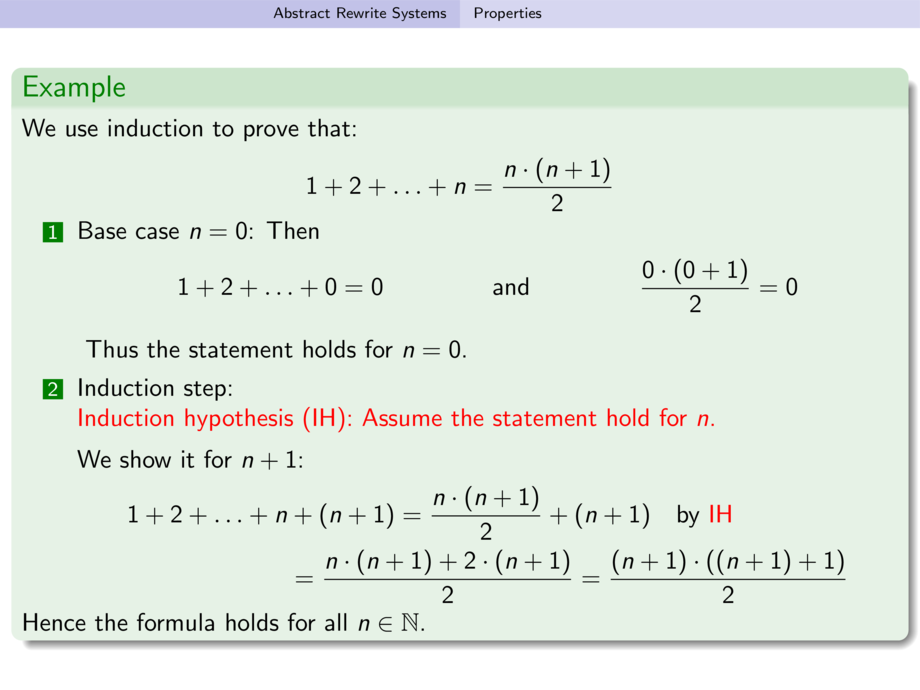



































































































148/250
\begin{frame}
\small
\begin{example}
We use induction to prove that:
\vspace{-1ex}
\begin{align*}
1 + 2 + \ldots + n = \frac{n \cdot (n+1)}{2}
\end{align*}
\vspace{-5ex}
\begin{enumerate}
\item<2->
Base case $n = 0$:
\onslide<3->
Then
\vspace{-1ex}
\begin{align*}
1 + 2 + \ldots + 0 &= 0 & \text{ and }&& \frac{0 \cdot (0+1)}{2} &= 0
\end{align*}
\vspace{-2ex}
\onslide<4->
Thus the statement holds for $n = 0$.
\medskip
\item<5->
Induction step:\\
\onslide<6->
\alert<6->{Induction hypothesis (IH): Assume the statement hold for $n$.}\\[1ex]
\onslide<7->
We show it for $n+1$:
\vspace{-1ex}
\begin{align*}
1 + 2 + \ldots + n& + (n+1) \onslide<8->{= \frac{n \cdot (n+1)}{2} + (n+1) \quad \text{by \alert{IH}}}\\
&\onslide<9->{= \frac{n \cdot (n+1) + 2\cdot(n+1)}{2}}
\onslide<10->{= \frac{(n+1) \cdot ((n+1) + 1)}{2}}
\end{align*}
\vspace{-5ex}
\end{enumerate}
\onslide<11->
Hence the formula holds for all $n \in \NN$.
\end{example}
\end{frame}

